Two-thirds of offenders 'victimised' in Parc juvenile unit
- Published
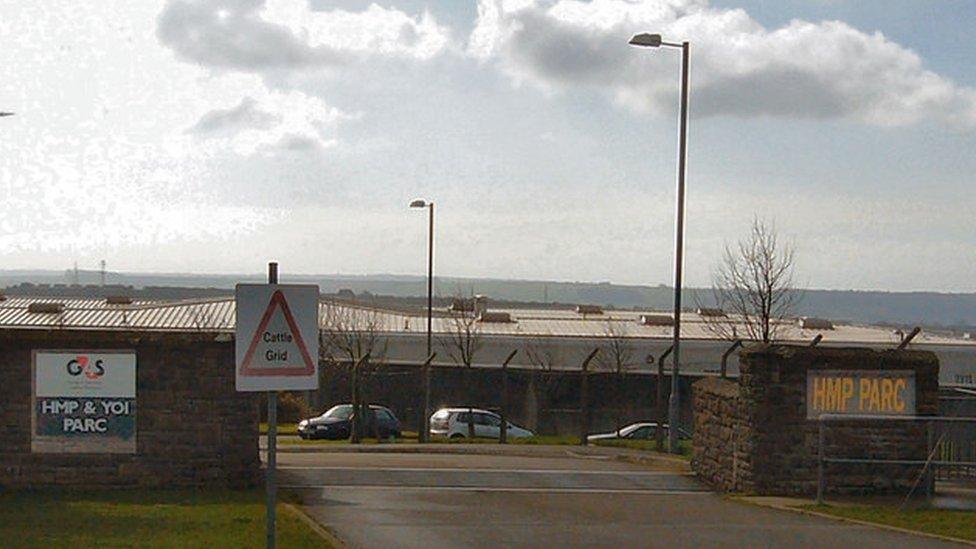
The young offender unit can hold up to 60 boys aged under 18
Nearly two-thirds of boys at a juvenile unit have been victimised by fellow offenders, an inspection has found.
But Parc Young Persons' Unit in Bridgend has been praised for "turning around" behavioural standards, external of offenders after a critical 2017 report.
HM Chief Inspector of Prisons said it had made "significant improvement".
Janet Wallsgrove, G4S director for Parc, said the report "recognised the considerable work done to address the shortfalls" from the last inspection.
The report said 44% of offenders at the juvenile unit run by security firm G4S said they had been victimised by staff, while 63% of the 43 boys said they had been victimised - twice the average - and 37% said they had been hit, kicked or assaulted.
The watchdog said although violence was falling, it remained "too high" and Parc should "address poor perceptions of safety and victimisation".
The report, following a visit in October 2017, said the unit had introduced initiatives to "address these concerns" and the inspector recommended it should survey boys at Parc, their families, carers and visitors about bullying concerns "to reduce the number of incidents".
Peter Clarke, HM chief inspector of prisons, welcomed work by the management to "turn around" standards.
"At our last visit we were disappointed to see some deterioration, with the institution becoming less safe and less respectful," he said.
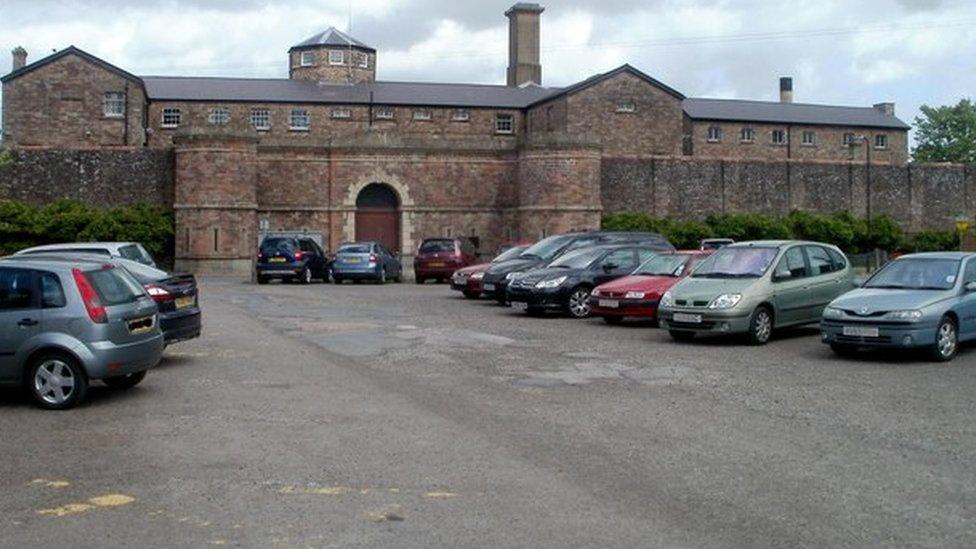
Usk is a small 19th Century category C prison that specialises in delivering sex offender treatment programmes
"At this inspection, however, it was clear to us that, with good leadership and a re-energised staff group, deterioration had been arrested and indeed quite significant improvement was evident."
The inspector also praised "fundamentally successful" prisons at Usk and Prescoed in Monmouthshire.
The report said Usk - which housed 274 men, nearly all of whom were sex offenders - and Prescoed open prison, which housed 252 men, were safe with very little violence and the most vulnerable men were "generally well cared for".
But the report said black and minority ethnic men were less positive about "staff-prisoner relationships", external and in HMP Usk, most men lived in overcrowded cells.
It added "offender management arrangements" at the prison were weak and offender supervisors, responsible for working with prisoners, did not actively support all men.
"Overall, Usk and Prescoed remained successful institutions," said Mr Clarke.
"Nevertheless, deficiencies previously identified in offender management work were still evident, and this aspect of work, in particular, needed renewed attention."
- Published4 January 2018
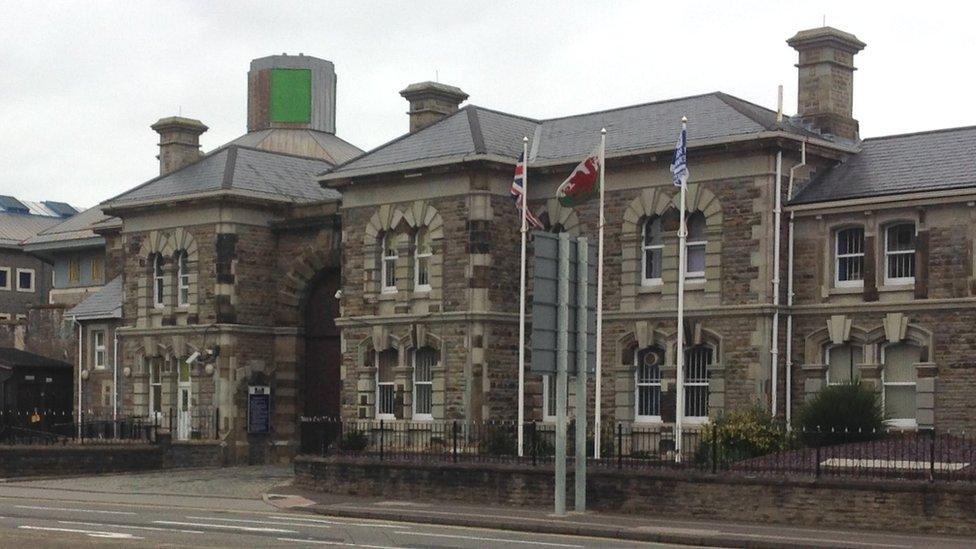
- Published22 November 2017
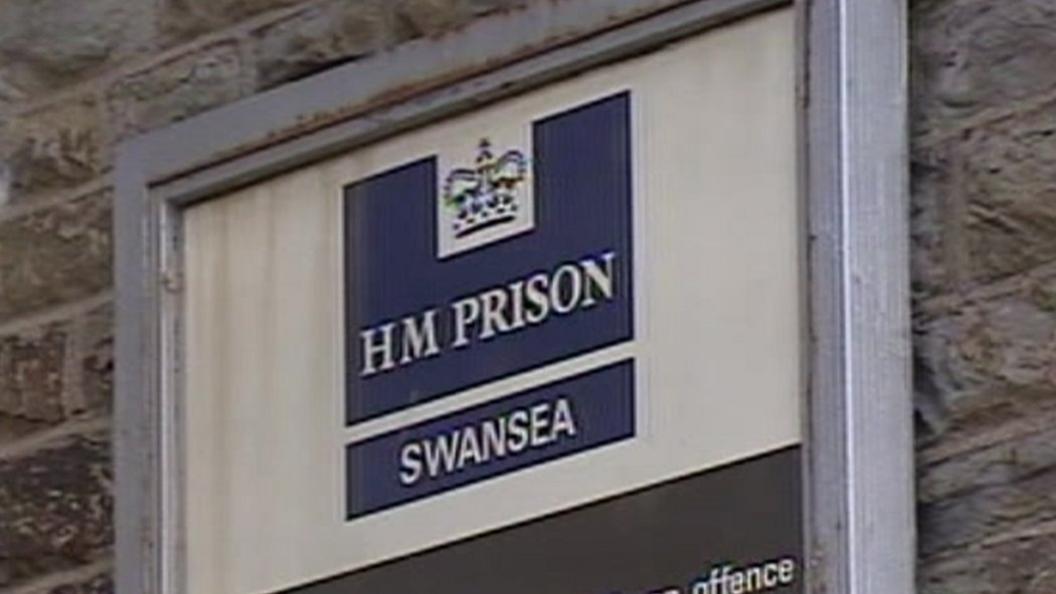
- Published20 July 2017

- Published30 October 2017
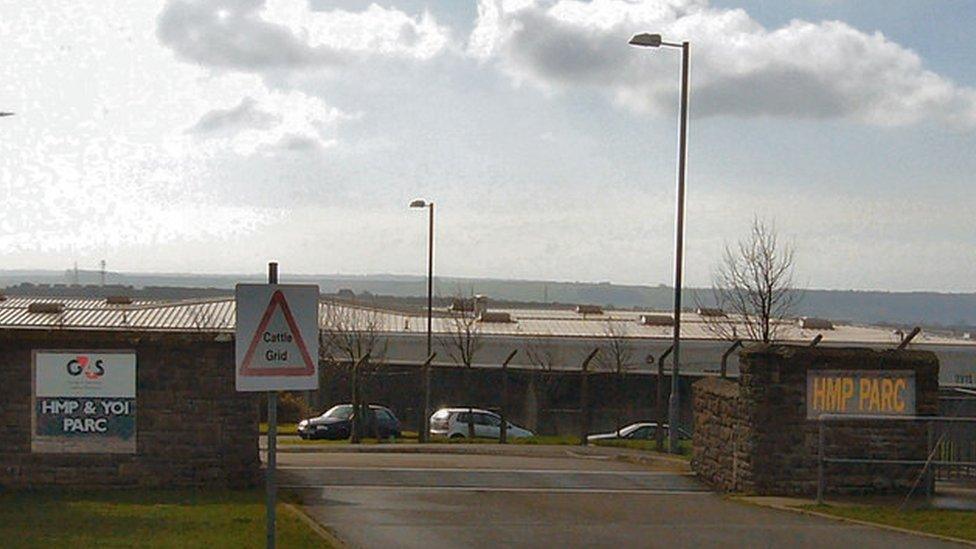
- Published18 April 2017

- Published21 January 2014
